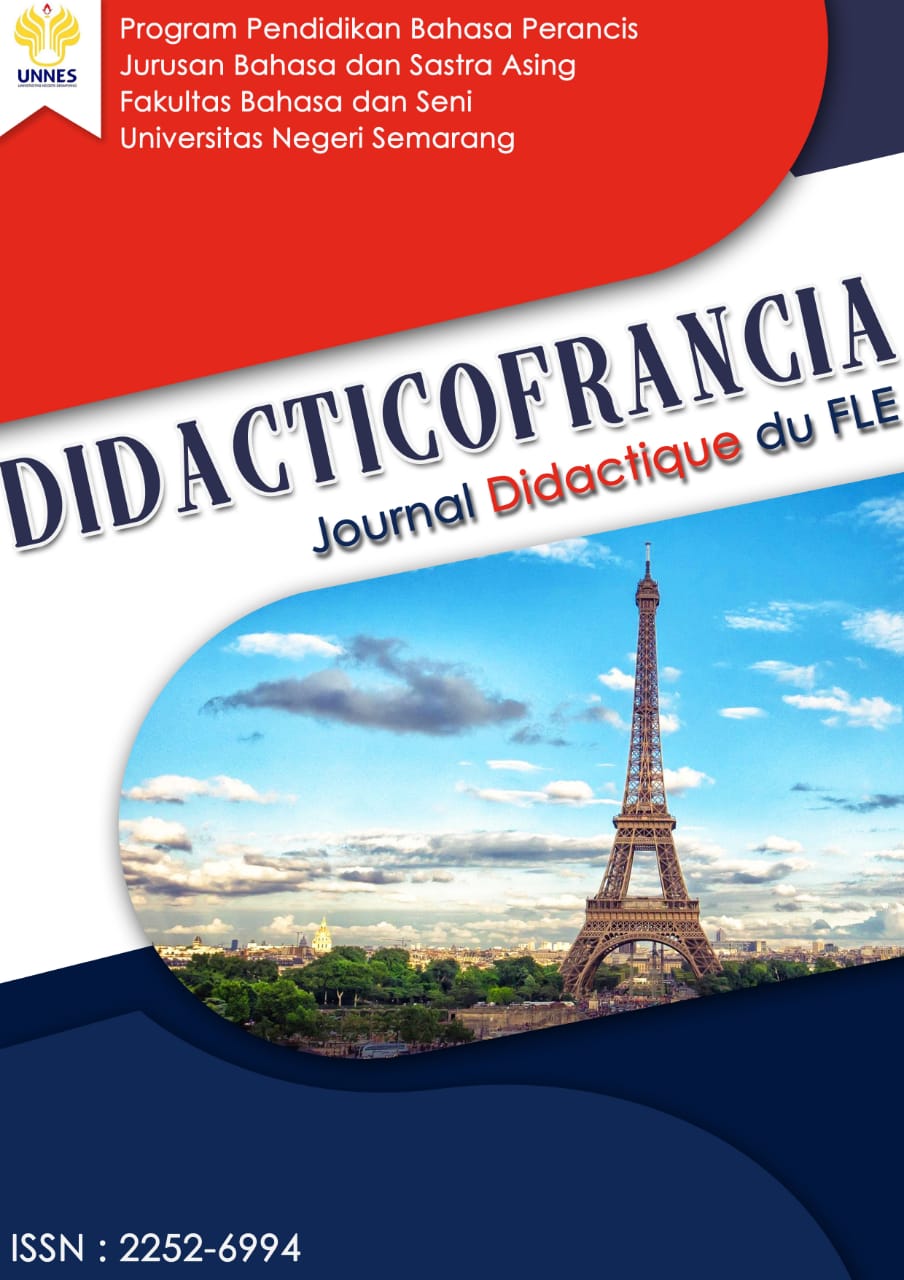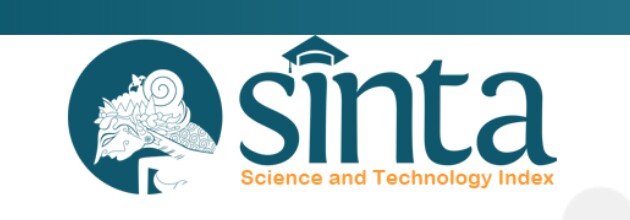NÉOLOGISMES DE LA PANDÉMIE COVID-19 SUR LE RÉSEAU SOCIAL TWITTER FRANÇAIS
Abstract
Abstract
Néologisme est un nouveau mot inventé. Initialement, chaque fois qu'un nouveau mot apparaissait, créé pour répondre à des besoins urgents, on l'appelait non-formation. Si le nouveau mot qui émerge du processus de non-formation persiste puis perd son statut de non-formation mais est toujours considéré comme nouveau par la plupart des membres de la communauté de la parole, il peut être classé comme un néologisme. Les néologismes se forment souvent suite à des phénomènes qui se produisent dans la société. L'un d'eux est l'apparition du phénomène de la pandémie de Covid-19. L'émergence de ce néologisme peut être facilement observée à travers le réseau social Twitter.
Cette étude vise à décrire la forme, le sens et le processus de formation des néologismes de la pandémie de Covid-19 sur le réseau social Twitter français. Cette recherche utilise une approche théorique en sociolinguistique et une approche méthodologique qualitative descriptive. La méthode de collecte de données utilisée est la méthode d'écoute avec la technique de base du tapotement et la technique avancée d'écoute libre et d'engagement dans la conversation. Les méthodes et techniques analytiques de cette étude utilisent la méthode d'appariement avec la technique de base de tri des éléments déterminants avec le pouvoir de tri référentiel. Les résultats de cette étude indiquent que les formes retrouvées sont des mots de base, des mots affixés et des mots complexes. Ensuite, il a également été constaté qu'il y avait des adjectifs, des noms et des verbes dans ces mots. Les processus de formation trouvés sont acronym, blending, borrowing, compounding, conversion, derivation, loan-translation et multiple processes (mixtes).
Abstract
Neologism is a new coinned word. Initially, every time a new word appeared that created to meet some urgent needs was referred to as non-formation. If the new word that emerges from the non-formation process persists and then loses its non-formation status but is still considered new by most members of the speech community, it can be categorized as a neologism. Neologisms are often formed following phenomena that occur in society. One of them is when the Covid-19 pandemic phenomenon appears. The emergence of this neologism can be easily observed through the Twitter social media.
This study aims to describe the form, meaning, and formation process for neologisms of the Covid-19 pandemic on French Twitter social media. This research uses a theoretical approach in sociolinguistics and a descriptive qualitative methodological approach. The data collection method used is the listening method with the basic technique of tapping and the advanced technique of free listening and engaging in conversation. The analytical methods and techniques in this study use the matching method with the basic technique of sorting the determining elements with the referential sorting power. The results of this study indicate that the forms found are basic words, affixed word and complex words. Then it was also found that there are adjectives, nouns and verbs in these words. The formation processes found include acronym, blending, borrowing, compounding, conversion, derivation, loan-translation and multiple processes (mixed).
References
Ahmad, K. (2000). Neologisms, nonces and word formation. U. Heid, S. Evert, E. Lehmann & C. Rohrer (Eds). The 9th EURALEX Int. Congress (pp. 711-730). Munich: Universitat Stuttgart.
Chaer, A. (2009). Pengantar Semantik Bahasa Indonesia. Jakarta: Rineka Cipta.
Djajasudarma. (2009). Semantik 1: Makna Leksikal dan Gramatikal. Bandung: Refika Aditama.
Kridalaksana, H. (2002). Kamus Linguistik. Jakarta: PT Gramedia.
Levchencko, Y. (2010). Neologism in the lexical system of modern English. München: GRIN Verlag.
Putrayasa, I. B. (2008). Analisis Kalimat: Fungsi, Kategori, dan Peran. Bandung: Refika Aditama.
Sudaryat, Y. (2009). Makna dalam Wacana: Prinsip-Prinsip Semantik dan Pragmatik. Bandung: Yrama Widya.
Suhardi. (2015). Dasar-Dasar Ilmu Semantik. Yogyakarta: Ar-Ruzz Media.
Suryaman, Maman. dkk. (2013). Modul BIPA Tata Bahasa. Yogyakarta: Universitas Negeri Yogyakarta.
Waridah, E. (2008). Seputar Bahasa Indonesia. Jakarta: Kawan Pustaka.
Yule, G. (2010). The Study of Language. Cambridge: Cambridge University. Press.









